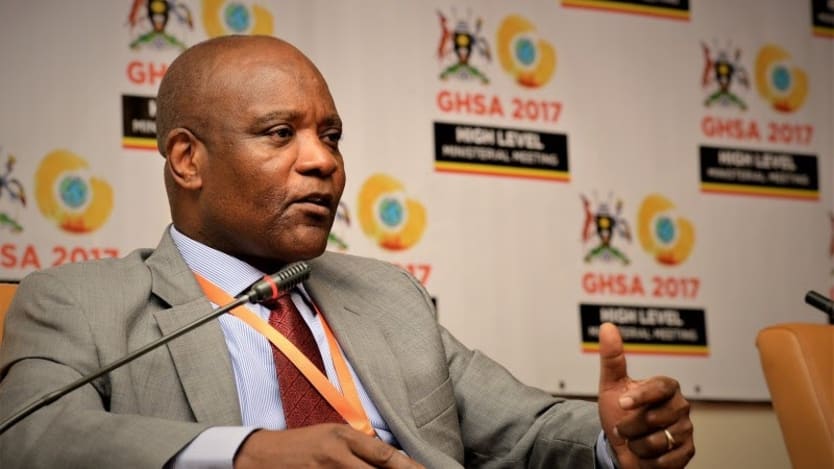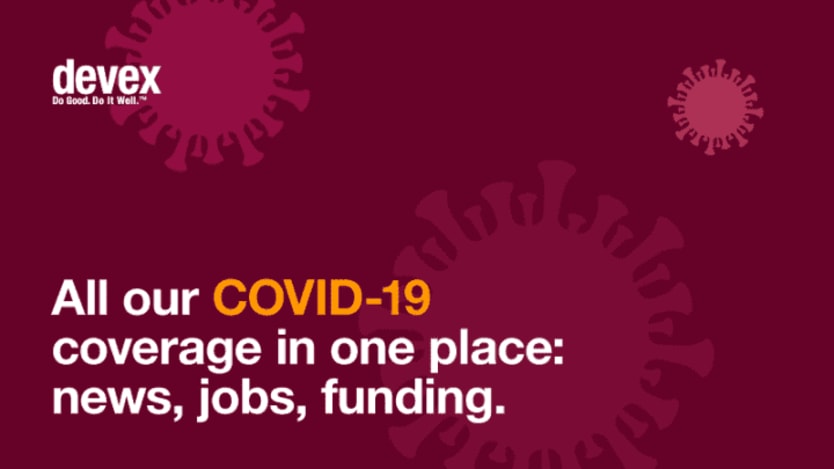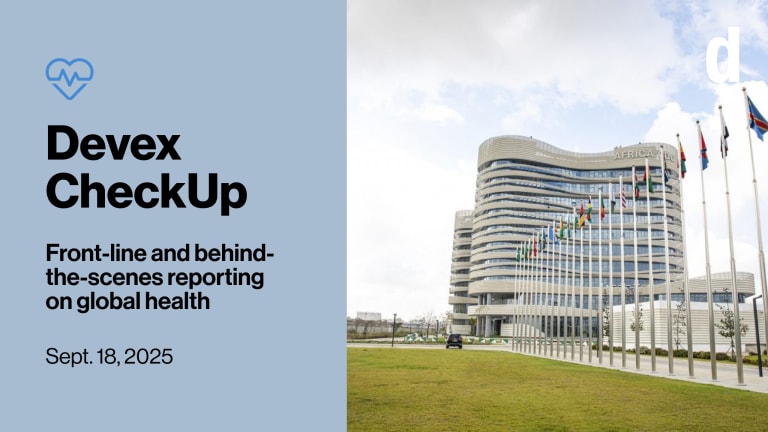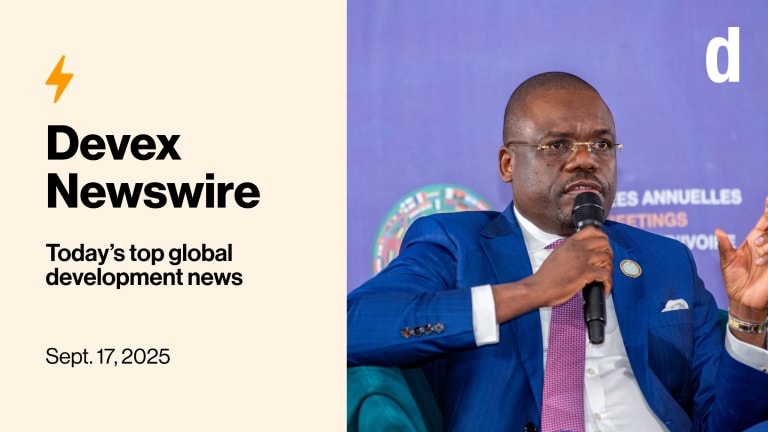
MANILA — The African region continues to have the lowest number of confirmed coronavirus cases, at over 36,000. But John Nkengasong, director of the Africa Center for Disease Control, says it’s possible they may not be seeing the full impact of this virus in the region yet.
“It’s very possible that we’re not seeing everything that is there, and maybe blinded to certain things because of the insufficient testing,” he told Devex.
This is why Africa CDC’s focus at the moment is to help ramp up testing in the region.
“You’ll not be safe if a continent of 1.3 billion has COVID going around.”
— John Nkengasong, director, Africa Center for Disease Control“As we speak, we’ve tested — as a continent of 1.3 billion people —- less than 500,000 people. That’s very limited. So if you break that down per million tested, it is less than 500 per million tested. If you compare that to Italy, United States, testing per million is really limited,” he said, adding, “If you don’t test, you don’t find.”
Testing has been central in efforts globally to contain the COVID-19 pandemic, which has infected over 3 million worldwide, with deaths now over 200,000. A number of high-income countries, such as the United States, have been hit hard by the pandemic. And countries in North America and Europe continue to cover the bulk of cases globally. But experts are worried that cases may balloon in other regions, such as Africa. Recent case modeling suggests cases on the continent could go up to millions in the next 3 to 6 months.
Nkengasong said his biggest concern is COVID-19 going “out of control” in Africa, and reaching high levels of infection as seen in Italy, Spain, U.K., and U.S.
“Can we cope with that? I think that’s my biggest fear,” he said.
Around the world, migrants and refugees are stranded between closed borders
Amid the COVID-19 pandemic, migrants and refugees face more danger than ever on their journeys — forced to endure endless hours at sea, days at border crossings without food and water, or deportation home.
Access to diagnostics is one of the three critical areas the Africa CDC chief identified the region needs right now, followed by personal protective equipment and commodities for case management, such as ventilators and oxygen equipment.
“We need access to the diagnostics market rapidly. And not any further delay. Because we still have a chance of fighting this virus. So we need access to diagnostics, and appropriate diagnostics that can be scaled up in country [and] in remote areas … and inner cities as much as possible,” he said.
“Of course you don’t do these things without financial support, and that needs to come quickly,” he added.
Nkengasong said there is currently a domestic focus across the world, as countries scramble to put this pandemic under control.
But he said “somebody needs to lift their heads up” and see that the threat of the virus will remain even if the pandemic tapers off in places such as Italy and Britain, but start taking off in Africa.
“We cannot have a divide between high-income and low-income countries, because this is a global crisis, requiring a global solution and global way of thinking at it,” he said.
“In other words, you’ll not be safe if a continent of 1.3 billion has COVID going around,” he added.
Testing therapeutics
Although limited, efforts are also underway in Africa to test certain candidate therapeutics against COVID-19. There are about 18 clinical trials on this in Africa, most of them in Egypt.
Some of the therapeutics being considered in trials: antimalarial drug hydroxychloroquine, a combination of it with azithromycin, blood pressure drug losartan, and antiviral favipiravir.
It’s unclear how many of these are occurring under the WHO-led solidarity trials, meant to speed up finding an effective treatment against COVID-19.
While well-coordinated by WHO, the solidarity trial’s design may not always be implementable in certain countries, said Philippe Guérin, director of the Infectious Diseases Data Observatory, and part of a coalition that aims to help ease oft-cited barriers to COVID-19 clinical trials in low and middle-income countries. Guérin said there are few clinical trials planned or taking place in Africa, South Asia, and Latin America.
But the trial has limitations, too.
“If you look at the protocol of the Solidarity Trial, this is to treat patients who are already in sort of late stage of the disease, and severe forms of the disease. And we believe that there are different types of gaps that need to be addressed, like what do you do if you are ... treating your patient who is not yet in a severe stage of the disease? and can we prevent that patient [from ending] up in this kind of condition?” he said.
“We are trying to tailor research for settings which will not have the capability actually to do intensive care for the severe patients,” he added.
But it’s not the numbers, but quality of trials, they are after, Nkengasong said.
“It should be whether we have good and sound science behind the trials. That is what is critical at this point,” he said.
“We know the standards. The design of the study is very important. If you design the study poorly, you may come out with a different outcome… And then the scientific basis for that. You don’t just take any drug with no relevance for COVID-19. We have to balance the science behind it and the ethics behind that,” he explained.
Visit our dedicated COVID-19 page for news, job opportunities, and funding insights.









